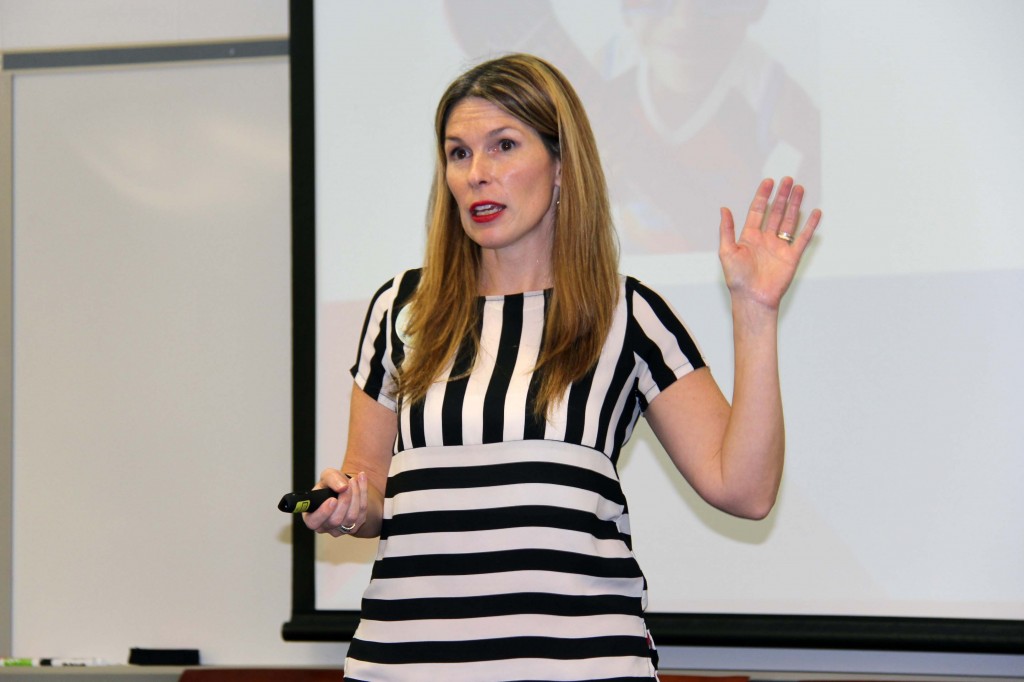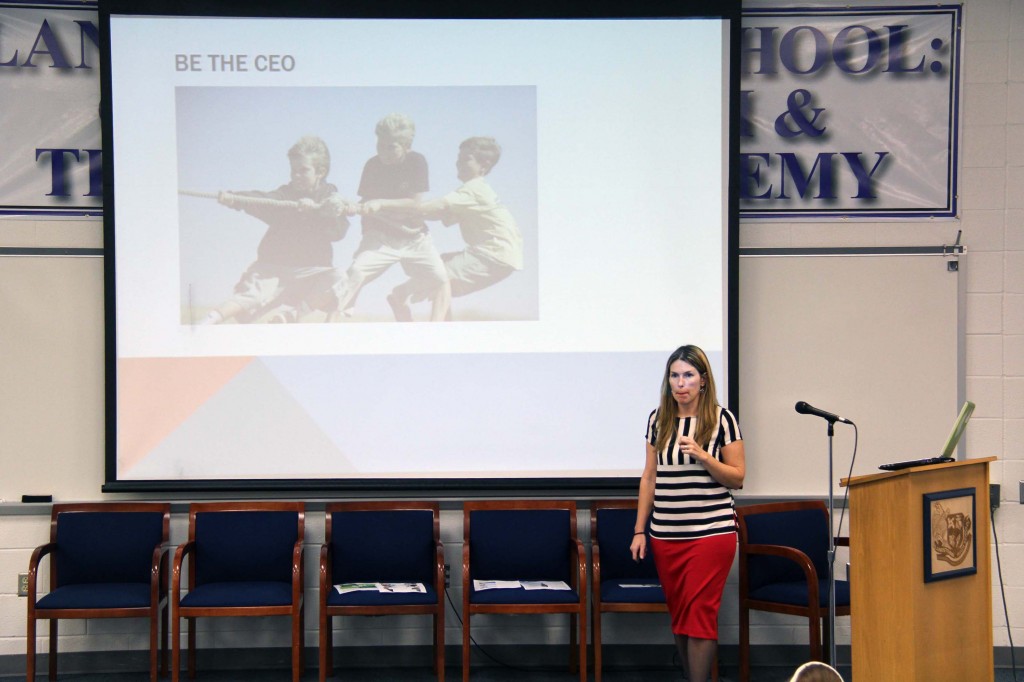“If you were the CEO of your own business, would you fire yourself?” asked Parent Connection presenter Amy Courtwright. She wanted the audience to reflect on their spending habits.
Courtwright, vice president of marketing for Virginia Beach School Federal Credit Union (VBSFCU), admitted she had to take a hard look at her own finances when she became a single parent several years ago.
“I wasn’t being a good CEO,” she said, “so I had to fire myself to get back on track.”
Parent Connection intentionally offered this free workshop in January recognizing that families often face mounting bills after the holiday season and making ends meet can sometimes be challenging, especially in single-parent homes. Courtwright, a single mother of two children, stressed that it is important for families to know where and how their money is being spent in order to stay financially fit.

“After I fired myself from being the CEO of my own finances, I took a course that forced me to look at my spending and examine my priorities,” she told the crowd.
It was that review of a year’s worth of monthly financial statements that showed Courtwright she had to make some changes. Using highlighters to color code what she spent on the mortgage, car, food, clothing, utilities and a twice-daily Starbucks habit that opened her eyes.
“I spent more than $1,700 on coffee,” Courtwright said. “That’s a Disney trip, people!”
Courtwright advised that reviewing monthly financial statements is a good strategy because it “makes you confront your wants versus your needs.” She added, “But it was also hard for me because Starbucks was my treat. It was a want. It made me feel good.”
Courtwright shared candidly that being a single parent made her feel like a failure in some ways, and her financial audit helped her identify the ways she was spending money just to make herself feel good and overcompensating to make her children happy. She offered her own realization, “Your children will still love you if you spend time with them and not spend money.”
 That may mean talking to your children about money, said Courtwright.
That may mean talking to your children about money, said Courtwright.
“Gone are the days when every time we go to a store they get a toy,” she said.
Courtwright noted such conversations need to be age-appropriate and based on each family’s own circumstances, but it helps for everyone to “be on the same team” – another strategy she says will help parents manage money. “You may have to break down the finances for them or explain to them why they can’t have everything they want. You all need to be on the same team.”
For her younger child, that meant framing the discussion around choices, explaining that she could have either a toy or dinner at Chick-fil-A, but not both. Describing her older child as “math-minded,” Courtwright and her son looked at her paycheck together. His first reaction? “Wow, that’s a lot of money,” said Courtwright imitating her son’s joy at their “wealth.” After talking about the payments adults have to make for their homes, cars, food and then the importance for saving for emergencies, her son better understood their financial obligations. Courtwright said she did highlight for her son the “line item for fun” on the Excel sheet, telling him that she makes sure to save and budget for entertainment.

Reflecting on the financial challenges she faced and the reorganization of her lifestyle, Courtwright told attendees that she had to make adjustments, and it was uncomfortable.
“But,” she coached, “then you rehire yourself as a CEO; you are a start-up company with good potential and you have some strategies to make your money work better for you.”
The school division’s Parent Connection offers free workshops throughout the school year. To view a calendar of upcoming Parent Connection events and additional resources available to families, visit vbschools.com/ParentConnection.
